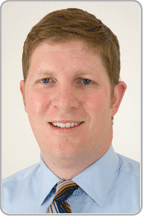Advanced Dermatology’s Christopher Byrne Offers Tips to Control the Disease
FRANKLIN, N.Y. (PRWEB) July 24, 2018
July 2018, Unlike beauty, psoriasis is more than skin-deep. In fact, recent research links the inflammatory skin disorder, in its more serious forms, to greater incidence of early death, says Christopher Byrne RPA-C, referring to a recent study in the Journal of Investigative Dermatology. Byrne is a certified physician assistant at New York- and New Jersey-based Advanced Dermatology PC and the Center for Laser and Cosmetic Surgery.
“Authors of the study report that patients with 10 percent or more of their body covered by psoriasis were at double risk of dying. That finding is not surprising considering psoriasis’ link to increased likelihood of heart attack, stroke, cardiovascular disease, inflammatory bowel disease, diabetes, life-threatening abdominal aneurysms, depression and even suicide,” says Byrne.
Calling psoriasis, a “complex, systemic, lifelong disorder,” Byrne advises patients to seek professional medical assistance should inflamed, raised, scaly, itchy patches characteristic of the disease begin appearing on the skin. The patches are the result of an over proliferation of skin cells, which, when scratched, may bleed and cause a burning or stinging sensation. Scratching also can lead to infection.
Psoriasis interrupts the body’s acquired immune system by causing antibodies and immune cells to attack, or interfere with, healthy tissue. The autoimmune reaction triggers an overproduction of T-cells, resulting in development of plaques on the skin. T-cells are the body’s defense again invaders like bacteria and viruses.
“Having a physician diagnose the condition in its earliest stages will ensure better management of the disorder, possibly slow or prevent certain disease-related processes and enhance a patient’s quality of life,” explains Byrne, adding that dermatologists, in particular, play an important role in screening patients for other diseases associated with psoriasis.
Early diagnosis is especially important since symptoms of eczema, a less serious skin problem, can sometimes be mistaken for those of psoriasis, Byrne says.
Considered the most prevalent autoimmune disease in the United States, psoriasis affects an estimated 7.5 million Americans and 125 million people worldwide. Between 10 percent and 30 percent of patients also will develop psoriatic arthritis, which promotes inflammation in and around the body’s joints.
The term psoriasis comes from a Greek word meaning “itchy.” Experts believe that people in biblical times may have oftentimes confused psoriasis with leprosy and isolated psoriasis patients even though the disorder is not contagious.
“Although the disease can develop at almost any age, it usually begins between the ages of 15 and 25,” Byrne says. “The most common form of the disorder is plaque psoriasis, which generates the appearance of scaly lesions typically on the scalp, knees, elbows and lower back.”
The disorder has no known cure, but treatments, including creams, corticosteroids, retinoids and other topical medications; photodynamic (light) therapy; biologic drugs for more moderate psoriasis; and systemic medications to attempt controlling serious flareups of the disease, can be effective in alleviating and minimizing recurrence of symptoms, Byrne says.
New research has given scientists a better understanding of psoriasis’ cellular and molecular mechanisms, which also underly immunity system dysfunctions affecting the heart and other body organs, and Byrne says he is hopeful novel, more effective psoriatic treatments will be developed in the near term.
Meanwhile, Byrne emphasizes that patients can do much on their own to control psoriasis by avoiding “triggers” that aggravate symptoms or prompt recurrence of the disease and improving lifestyle. He offers these tips:
- Eat a well-balanced diet that includes omega-3 and vitamin D. Salmon, herring and walnuts are among sources of omega-3.
- Take short, warm – not hot – baths. Consider using fragrance-free bath oils or Epsom salts in the water to help reduce skin dryness and itching.
- Keep psoriatic skin moisturized. Use a topical ointment or cream, such as petroleum jelly. A moisturizer can be most effective when applied immediately after a bath.
- Try not to scratch that itch. Scratching further irritates the skin, and damaged skin can become infected.
- Reduce stress in your life. Stress can cause flare-ups of psoriasis.
- Avoid alcohol and stop smoking. Studies show both alcohol and smoking worsen symptoms of psoriasis and limit effectiveness of treatments.
Bio: Christopher Byrne RPA-C is a certified physician assistant at Advanced Dermatology PC and the Center for Laser and Cosmetic Surgery.
Advanced Dermatology P.C. and the Center for Laser and Cosmetic Surgery (New York & New Jersey) is one of the leading dermatology centers in the nation, offering highly experienced physicians in the fields of cosmetic and laser dermatology as well as plastic surgery and state-of-the-art medical technologies. http://www.advanceddermatologypc.com.

